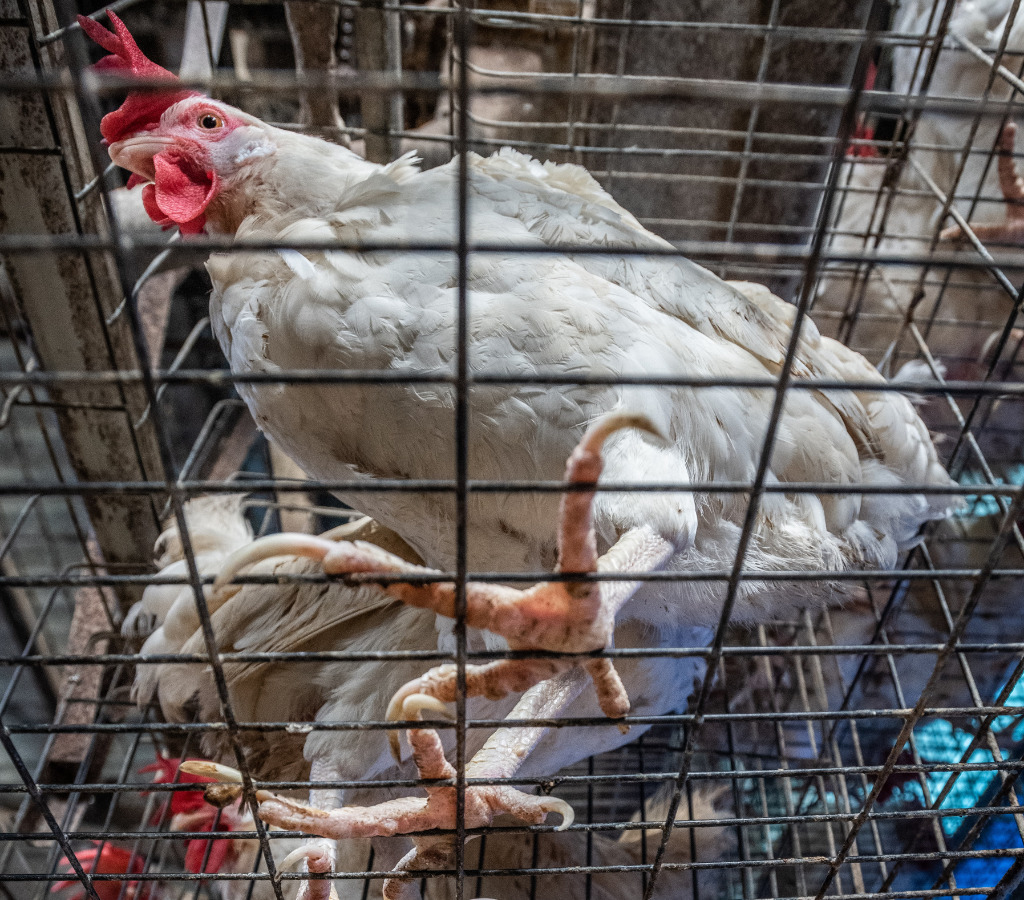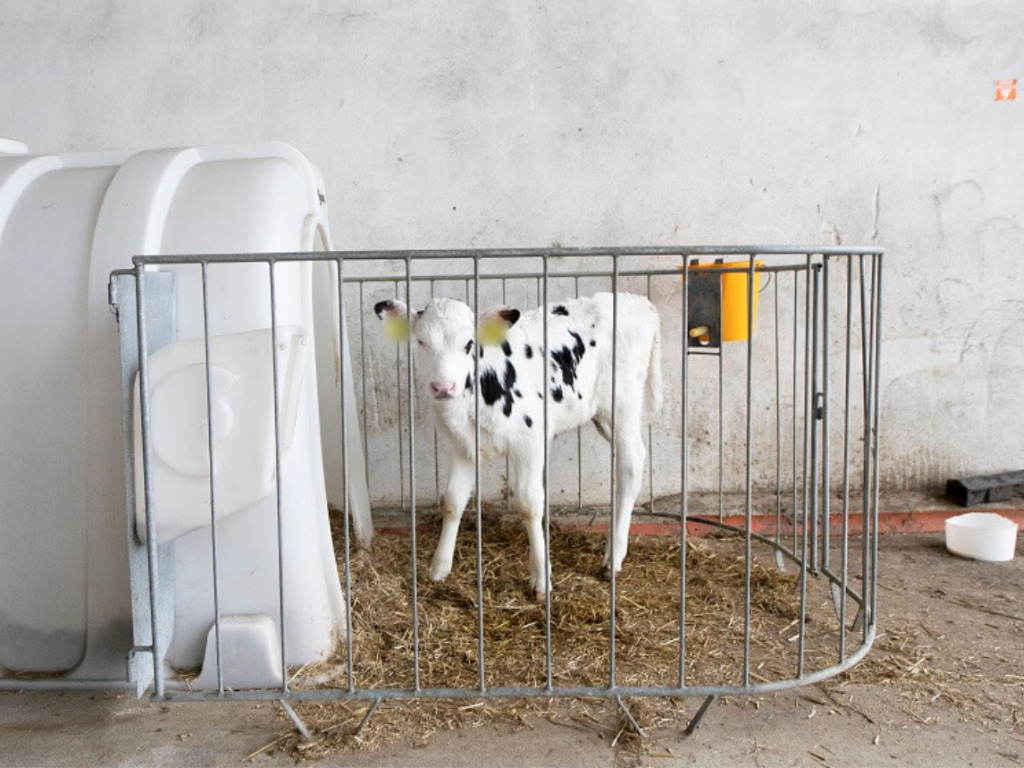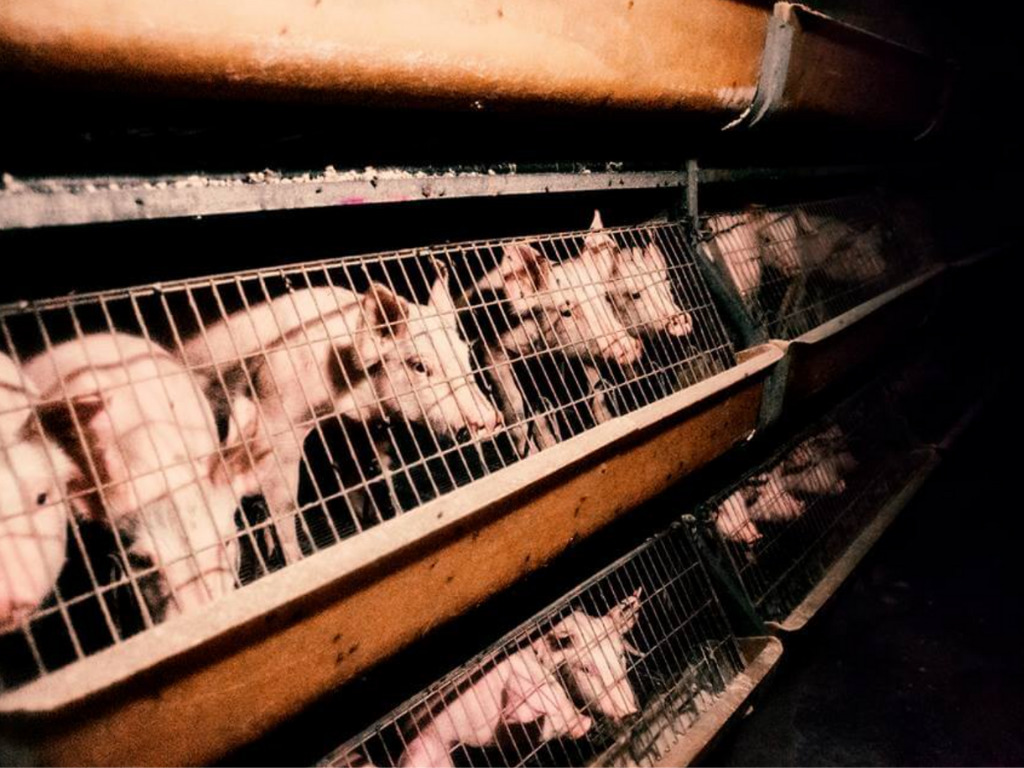5 Mins Read
The European Commission has announced that it will establish new legislation to ban the use of cages in animal agriculture impacting 300 million animals. The ban will be introduced by the end of 2023 in an effort to phase out all cages by 2027. This news comes after pressure from 170 organizations and citizens across Europe through the “End the Cage Age” initiative.
300 million animals on factory farms
The current E.U. farm animal legislation states that animals should not be restricted in their movements so as to cause suffering to them. It further states that if animals are confined on a regular basis, they must be given enough space for their physiological and ethological needs.
However, several of the existing cage systems overstep this legislation. For instance, calves, geese, and quail are kept in cages that hold around 80 birds. Haying hens and rabbits are crammed in spaces around the size of a standard A4 sheet of paper. Due to this, these animals are unable to perform natural actions like standing straight, stretching, or turning around.
According to the End the Cage Age report, in the E.U. 94% of farmed rabbits, 49% of hens, and 85% of female pigs are presently caged.
According to the animal welfare organization Compassion in World Farming, around 300 million animals are predicted to be living out of cages across Europe.
In 2012, E.U. banned the use of barren battery cages. Despite this, 50% of commercial egg-laying hens live in “enriched” cages and breeding flocks and chicks continue to be kept in barren cages.

People-driven ban
Back in 2018, more than 170 organizations including PETA and Compassion in World Farming, a group of cross-party MEPs, and the European Committee of the Regions, joined more than 140 scientists, veterinary students, veterinarians, and concerned citizens to create the “End the Cage Age” European Citizens’ Initiative (ECI). The aim of the initiative was to help the animals confined in cages and make their lives less painful.
To strengthen the initiative, events were held in E.U. countries and partnerships with MEPs and celebrities were established. In addition, undercover investigations of caged young calves, quails, and rabbits were released.
With over 1.4 million signatures, this is the first-ever successful ECI for the welfare of farmed animals. In October 2020, the signatures were submitted to the European Commission.
No more animal cages
The European Parliament debated on the petition put forward and decided to vote with 558 votes in favor of the ban on caged animals, and only 85 abstentions and 37 votes against the ban.
As a result, by 2023, the European Commission will introduce a legislative proposal to ban the use of cages for animal species including hens, mother pigs, calves, rabbits, ducks, and geese. It will look to phase this out completely for all farmed animals by 2027. This proposal will require the approval of all 27 member E.U. states, the European Parliament, and the Council of the E.U.
E.U. health commissioner Stella Kyriakides and commission vice-president Věra Jourová announced this decision at a press conference.
European commissioner for health and food safety, Kyriakides said: “It is important that today, we can say we have listened to you and we will continue to listen; we have heard you and we will continue to hear and will deliver upon your aspirations, which are shared aspirations. Animal welfare is for us a political priority and we will continue to show our commitment to this.”
Apart from this, the E.U.’s legislation will further ensure that all imported products meet cage-free standards in the future. To help European farmers shift to cage-free farming, E.U. will execute systems to provide them with incentives and financial support.
Animal welfare is for us a political priority and we will continue to show our commitment to this
Stella Kyriakides, European commissioner for health and food safety
Head of E.U. at Compassion in World Farming, Olga Kikou said: “The long-awaited day has finally come! Today, the European Commission made a historic decision to leave a legacy for farmed animals. Citizens demanded change and the Commission received the message loud and clear, making an unequivocal and visionary commitment to phase out cages. The tide is finally turning. We will stay focused on the European institutions until they deliver on this ambition and will be vigilant in preventing vested interests from watering it down. Factory farming is the biggest cause of cruelty to sentient creatures on the planet. Ending the use of cages is a massive step towards ending factory farming.”
According to reports, if the world continues to conduct animal farming, it will enter into an “era of pandemics.” And unless measures are taken to end this, humans could be exposed to as many as 850,000 unknown viruses.

Citizens demanded change and the Commission received the message loud and clear, making an unequivocal and visionary commitment to phase out cages. Ending the use of cages is a massive step towards ending factory farming
Olga Kikou, head of E.U. at Compassion in World Farming
Existing state legislations
Some E.U. member states have already set up national legislation to prohibit certain types of caged farming. For instance, in Sweden, mother pigs are no longer kept in cages. Germany too plans to end the use of cages for these animals by 2030 and by 2025 will ban enriched cages for laying hens.
Luxembourg and Austria have prohibited keeping aying hens in cages and Czech MPs have noted to ban the same by 2027.
Apart from countries, companies have pledged to use only cage-free products. These include Tesco, Morrisons, Carrefour, Intermarché, and major egg producers in the U.K. (Noble Foods) and France (Groupe Avril). Since 2016, the number of brands with cage-free commitments has increased from five to 37.
In the U.S., McDonald’s decided to use only cage-free eggs by 2025 and this has promoted Walmart, Nestlé, Starbucks, and Publix to make similar statements.
According to the animal-rights group Open Wing Alliance (OWC), 85% of companies cage-free commitments’ have been met.
Lead image courtesy of PETA.



